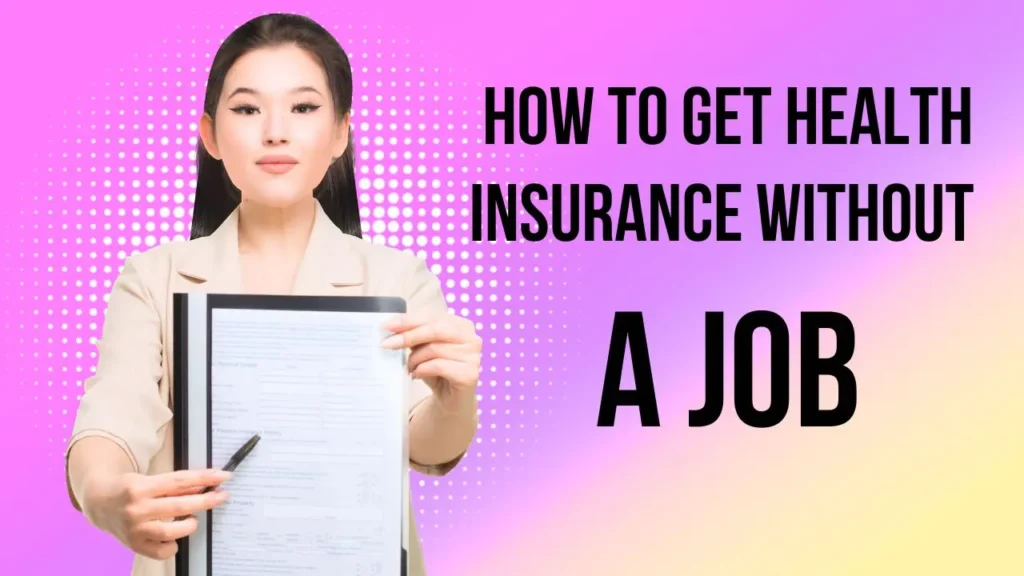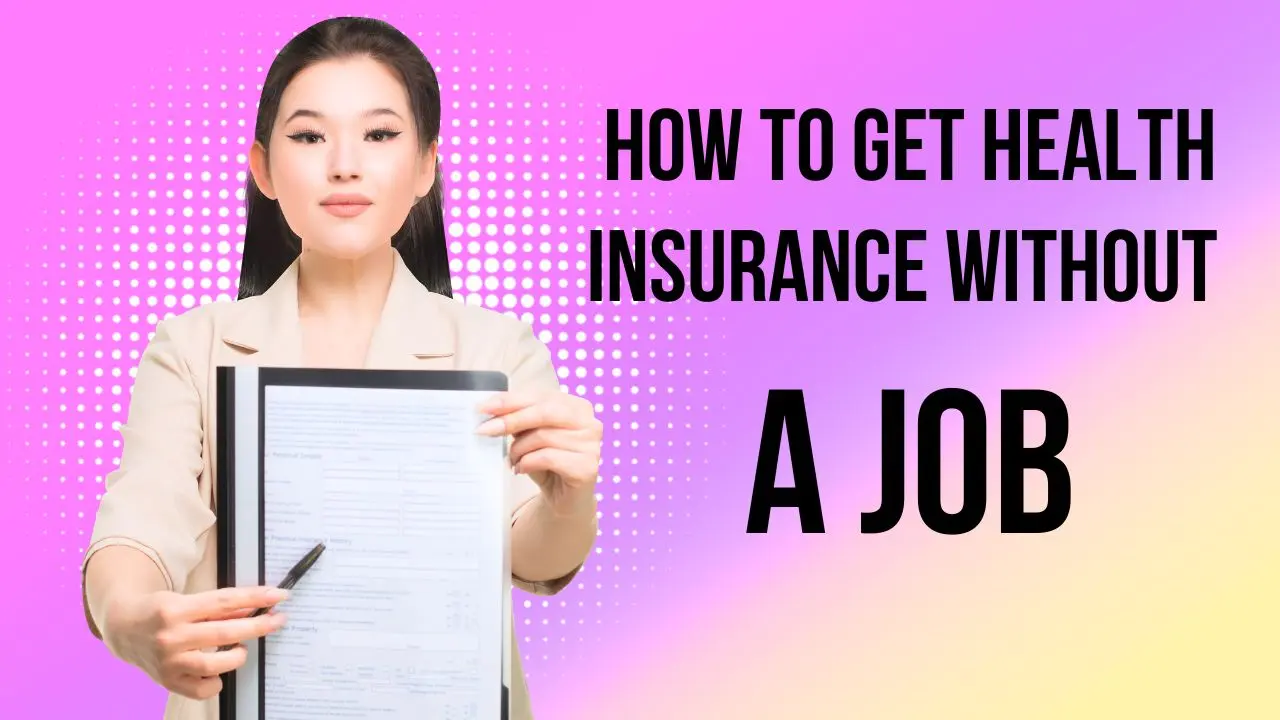Navigating Health Insurance Without Employment: A Comprehensive Guide for the United States
In the dynamic landscape of career transitions, periods of unemployment can present challenges, and one of the most critical concerns during such times is health insurance. Ensuring access to healthcare services becomes paramount when traditional employer-sponsored coverage is not in place. This guide comprehensively explores strategies and alternatives for obtaining health insurance without a job in the United States.
Understanding the Landscape
1. Evaluate Your Eligibility for Medicaid
One of the first steps is to determine if you qualify for Medicaid, a state and federally funded program that provides health coverage to low-income individuals. Eligibility criteria vary by state, so check the specific guidelines in your state to see if you qualify.
2. Explore Affordable Care Act (ACA) Marketplaces
Visit the ACA Health Insurance Marketplace, where you can explore and purchase insurance plans. The marketplace provides a platform for comparing different plans, understanding costs, and potentially qualifying for subsidies based on your income.
3. Consider COBRA Coverage
If you’ve recently lost your job, you may be eligible for COBRA coverage, allowing you to temporarily continue the employer-sponsored health insurance plan. It’s crucial to understand the costs associated with COBRA and explore this option within the specified time frame.
Tailoring Solutions to Your Situation
4. Short-Term Health Insurance Plans
For those anticipating a brief gap in coverage, short-term health insurance plans can provide a temporary solution. These plans are designed to cover essential healthcare needs during transitional periods.
5. Health Savings Accounts (HSAs) and Catastrophic Plans
Explore High Deductible Health Plans (HDHPs) coupled with Health Savings Accounts (HSAs). These plans offer lower premiums, and HSAs allow you to save money tax-free for medical expenses. Catastrophic health insurance is another option, designed for those under 30 or facing financial hardship.
6. Seek Employment with Health Benefits
Look for part-time or temporary employment opportunities that offer health benefits. While this might not be the primary reason for accepting a job, it could provide a short-term solution until more stable coverage is secured.

Proactive Measures
7. Maintain Preventive Care
Even without job-related health insurance, prioritize preventive care. Many community health clinics offer low-cost or sliding-scale services. Staying proactive with your health can help prevent more significant issues down the line.
8. Utilize Telemedicine Services
Explore telemedicine services for non-emergency medical consultations. Many providers offer virtual appointments, providing convenient and affordable access to healthcare professionals.
Conclusion
Navigating the realm of health insurance without a job in the United States requires a strategic approach. By understanding available options, exploring tailored solutions, and taking proactive measures, you can ensure continuous access to vital healthcare services during transitional periods. Remember, each individual’s situation is unique, so carefully assess your needs and explore the avenues that align best with your circumstances.
Ways to Save on Healthcare Without Insurance?
In the absence of insurance, saving on healthcare becomes paramount. This guide explores effective strategies to mitigate healthcare costs without insurance, offering practical solutions to navigate the complex landscape of medical expenses.
1. Explore Discount Programs and Coupons
Many pharmacies and healthcare providers offer discount programs or coupons for prescription medications and medical services. Research and inquire about available discounts to reduce out-of-pocket expenses.
2. Negotiate Medical Bills
Don’t hesitate to negotiate medical bills directly with healthcare providers. Many facilities are willing to work out payment plans or offer discounts for prompt payment. Clear communication about your financial situation can lead to more manageable payment arrangements.
3. Consider Telemedicine Services
Telemedicine provides a cost-effective alternative for non-emergency medical consultations. Virtual appointments can be more affordable than in-person visits, offering convenience and savings on transportation costs.
4. Explore Community Health Clinics
Community health clinics often provide low-cost or sliding-scale services. These clinics are designed to offer essential healthcare to individuals, regardless of insurance status, and can be a valuable resource for preventive care and basic medical needs.
5. Participate in Health Savings Accounts (HSAs)
If eligible, consider opening a Health Savings Account (HSA) to save money tax-free for medical expenses. HSAs are coupled with High Deductible Health Plans (HDHPs) and can help offset healthcare costs while providing a financial safety net.
6. Research Free or Low-Cost Clinics
Some regions have free or low-cost clinics that offer a range of medical services. These clinics are often operated by nonprofit organizations and can be a valuable resource for those without insurance.
7. Utilize Prescription Assistance Programs
Explore pharmaceutical assistance programs provided by drug manufacturers or nonprofit organizations. These programs aim to help individuals access necessary medications at reduced or no cost.
8. Invest in Preventive Care
Prioritize preventive care to avoid more significant health issues that may result in higher costs. Regular check-ups, screenings, and a healthy lifestyle can contribute to long-term savings on healthcare expenses.
9. Shop for Affordable Healthcare Services
Some online platforms allow individuals to compare prices for various medical services. Shopping around for affordable healthcare services can help you find cost-effective options for diagnostic tests, imaging, and other non-emergency procedures.
10. Explore Health Discount Plans
Consider health discount plans that offer reduced rates on various healthcare services. While not insurance, these plans can provide discounts on medical, dental, and vision expenses, helping to alleviate the financial burden of healthcare costs.
In conclusion, while lacking insurance may present challenges, there are numerous ways to save on healthcare costs. By exploring discounts, negotiating bills, leveraging telemedicine, and utilizing community resources, individuals can actively manage and reduce their healthcare expenses. Each strategy contributes to a more comprehensive approach to healthcare cost management.
1. What options are available for health insurance without a job?
- Options include Medicaid, ACA marketplaces, COBRA coverage, short-term health plans, and exploring health savings accounts (HSAs).
2. Can I qualify for Medicaid without a job?
- Eligibility for Medicaid varies by state, but low-income individuals may qualify. Check your state’s specific guidelines for eligibility criteria.
3. How do ACA marketplaces work for the unemployed?
- ACA Health Insurance Marketplaces offer various plans, and individuals may qualify for subsidies based on income. Explore plans, costs, and potential subsidies.
4. What is COBRA coverage, and am I eligible for it?
- COBRA allows you to continue your employer-sponsored health plan temporarily after job loss. Eligibility and costs depend on specific circumstances.
5. Are there short-term health insurance plans for temporary coverage?
- Yes, short-term health plans provide temporary coverage for those anticipating a brief gap. They are designed to cover essential healthcare needs during transitional periods.
6. How can health savings accounts (HSAs) help without a job?
- HSAs, coupled with High Deductible Health Plans (HDHPs), allow tax-free savings for medical expenses, providing a financial safety net during unemployment.
7. Are there alternatives for prescription medication assistance without insurance?
- Yes, explore pharmaceutical assistance programs offered by drug manufacturers or nonprofit organizations for reduced or no-cost medications.
8. Can I negotiate medical bills if I don’t have insurance?
- Absolutely. Many healthcare providers are open to negotiating bills directly. Communicate your financial situation and explore options for manageable payment plans or discounts.
9. What are community health clinics, and how can they help?
- Community health clinics offer low-cost or sliding-scale services, providing essential healthcare regardless of insurance status. They can be valuable for preventive care and basic medical needs.
10. How can I prioritize preventive care without job-based insurance?
- Prioritize preventive care through free or low-cost clinics, regular check-ups, and a healthy lifestyle. Preventing major health issues can contribute to long-term savings on healthcare expenses.

